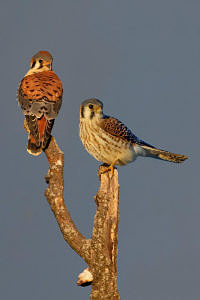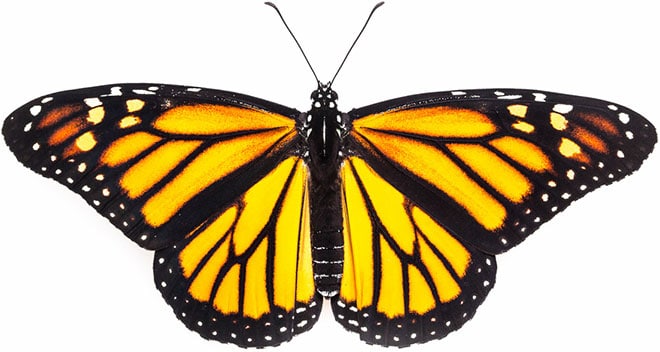
Although the American Kestrel is a species in decline, the installation, maintenance, and monitoring of nest boxes in appropriate grassland habitat can help bolster local breeding populations.
(photo © Josh Haas)
On January 28, the Harris Center will compete for top honors in Mass Audubon’s Superbowl of Birding, a friendly annual birding competition to see who can find the greatest number of bird species (and score the highest number of points) on a single day in coastal New Hampshire and Massachusetts. The Harris Center’s team, “The Kestrels,” is focusing their efforts on raising awareness of American Kestrel conservation, and on raising funds for kestrel nest boxes.
In our work to recover local kestrel populations, the Harris Center has already conducted habitat modeling to identify suitable kestrel nesting locations throughout the Monadnock Region, and reached out to dozens of landowners willing to host nest boxes. Now, we just need to build, install, and monitor the boxes!
During the Superbowl of Birding, our team will scour Rockingham County, New Hampshire, from 5 a.m. to 5 p.m. to find as many birds as possible. (A lofty goal of 75 species is attainable with some luck.) You can choose to support them by making a per-species pledge, or a one-time donation. Either way, your donation will help the Harris Center achieve our goal of building and installing 20 to 30 kestrel nest boxes in the Monadnock Region. (Materials cost approximately $100 per box, and boxes will be built with the help of volunteers.)
Our team includes Harris Center Bird Conservation Director Phil Brown, as well as top birders and Harris Center friends, Steven Lamonde, Chad Witko, Katrina Fenton, and Will Stollsteimer. Thank you for helping “The Kestrels” soar!
Contact Us
For more information or to volunteer with the Harris Center’s kestrel project, please contact Bird Conservation Director Phil Brown by email.

